Number identification Numbers Worksheets for Ages 4-7
6 filtered results
-
From - To
Discover our engaging Number Identification Worksheets designed for children ages 4-7. Our printable worksheets help young learners recognize, identify, and master numbers in a fun, interactive way. Featuring vibrant illustrations and playful activities, these worksheets foster numeracy skills early on. Perfect for use at home or in the classroom, they offer a variety of exercises that cater to different learning styles. With step-by-step guidance and ample practice opportunities, kids build confidence in their numerical abilities while having fun. Support your child's mathematical journey with our specially crafted Number Identification Worksheets today!
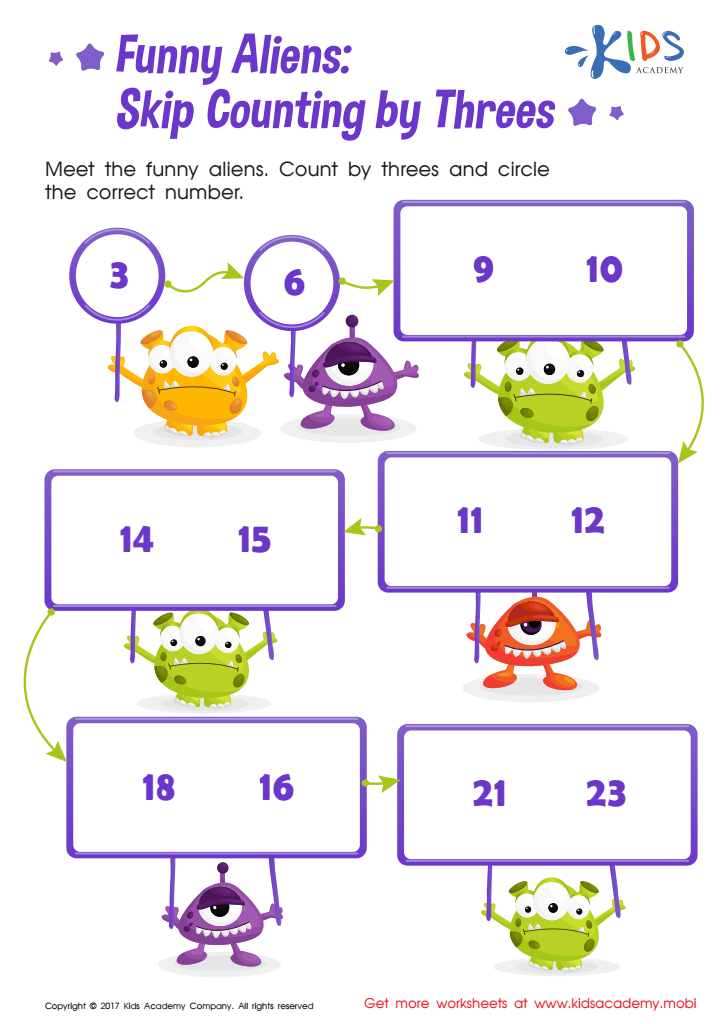

Skip Counting by 3s: Funny Aliens Printable
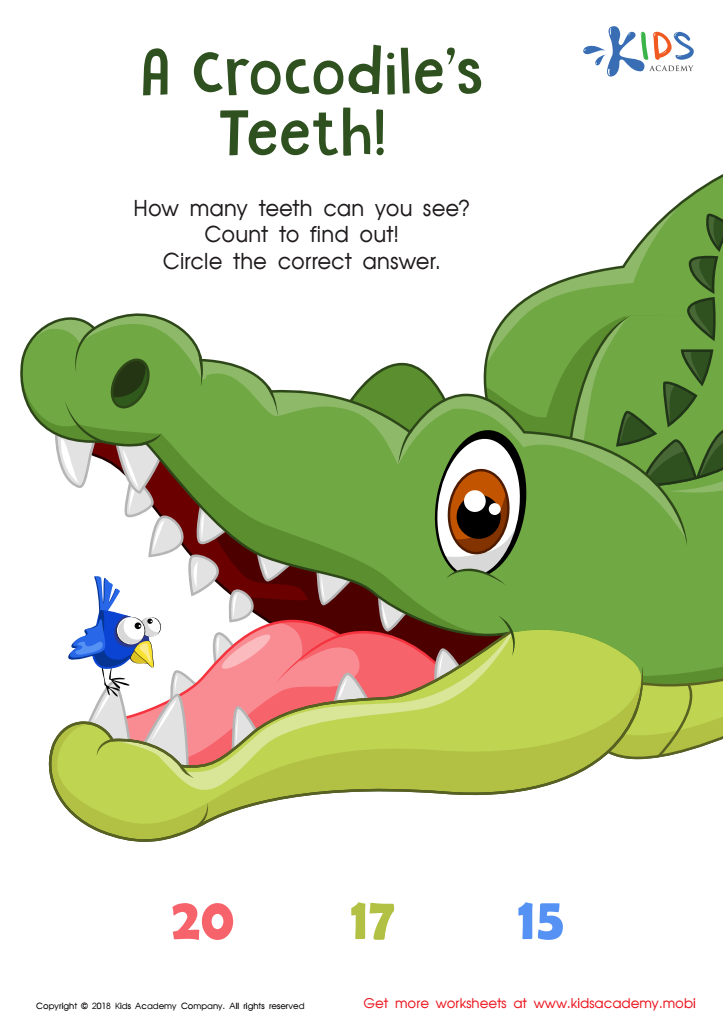

A Crocodile's Teeth Worksheet
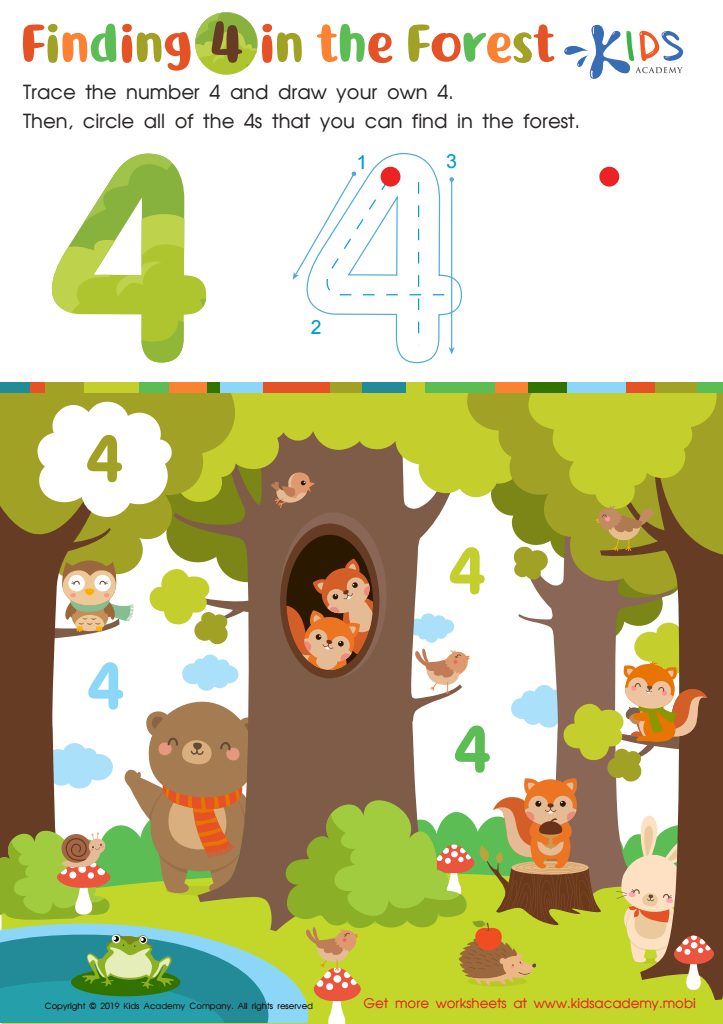

Finding 4 in the Forest Worksheet
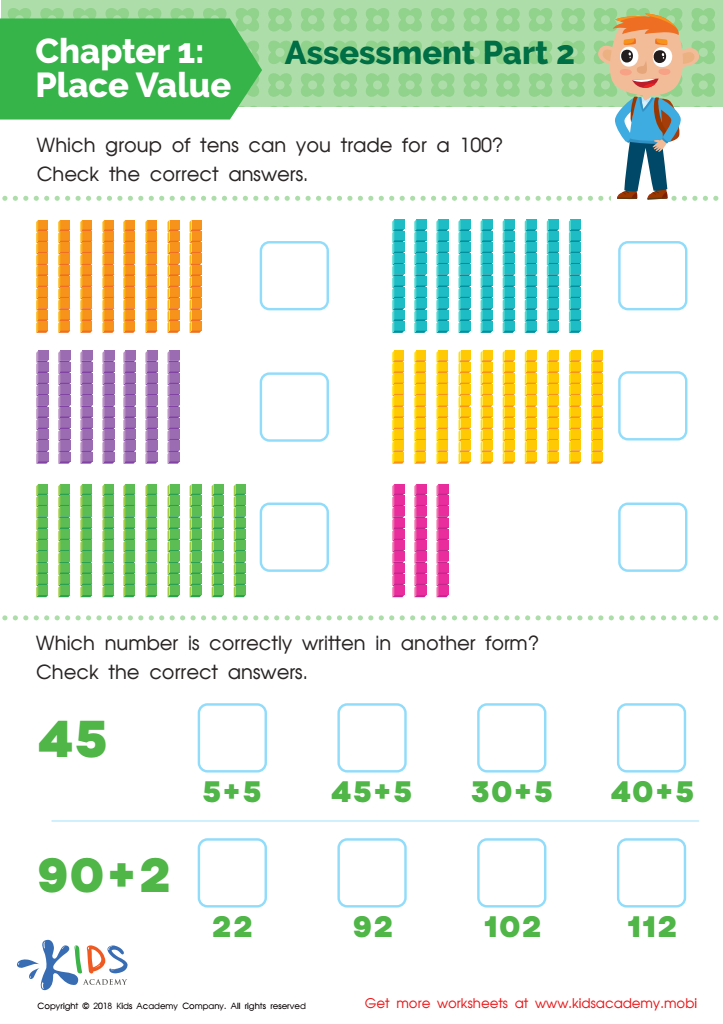

Place Value: Chapter 2 Worksheet
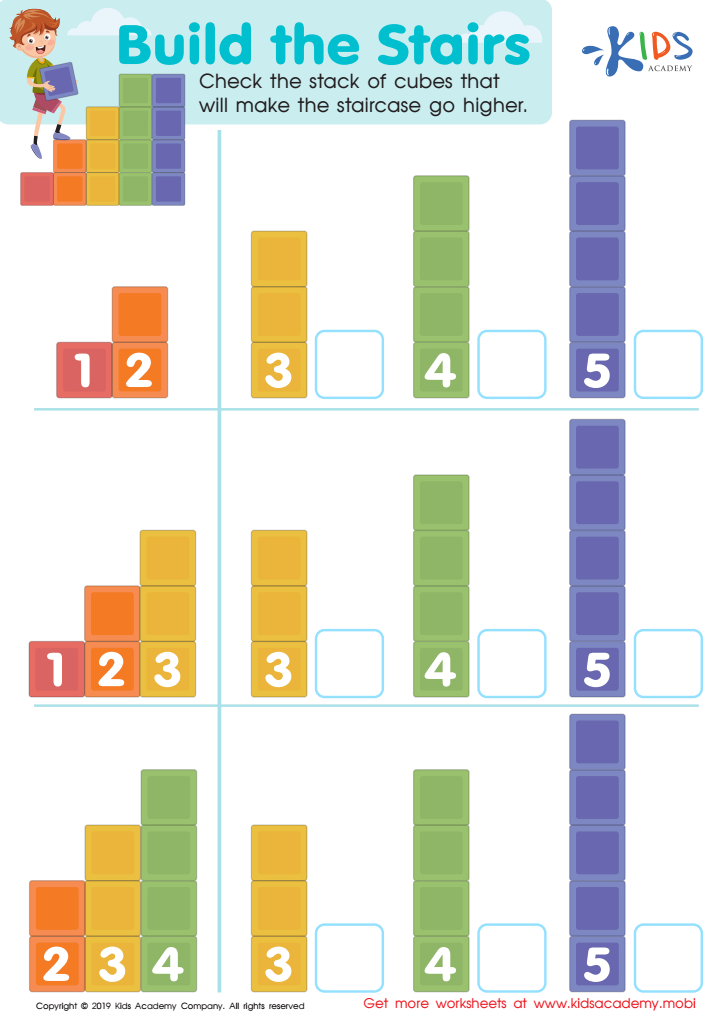

Build the Stairs Worksheet
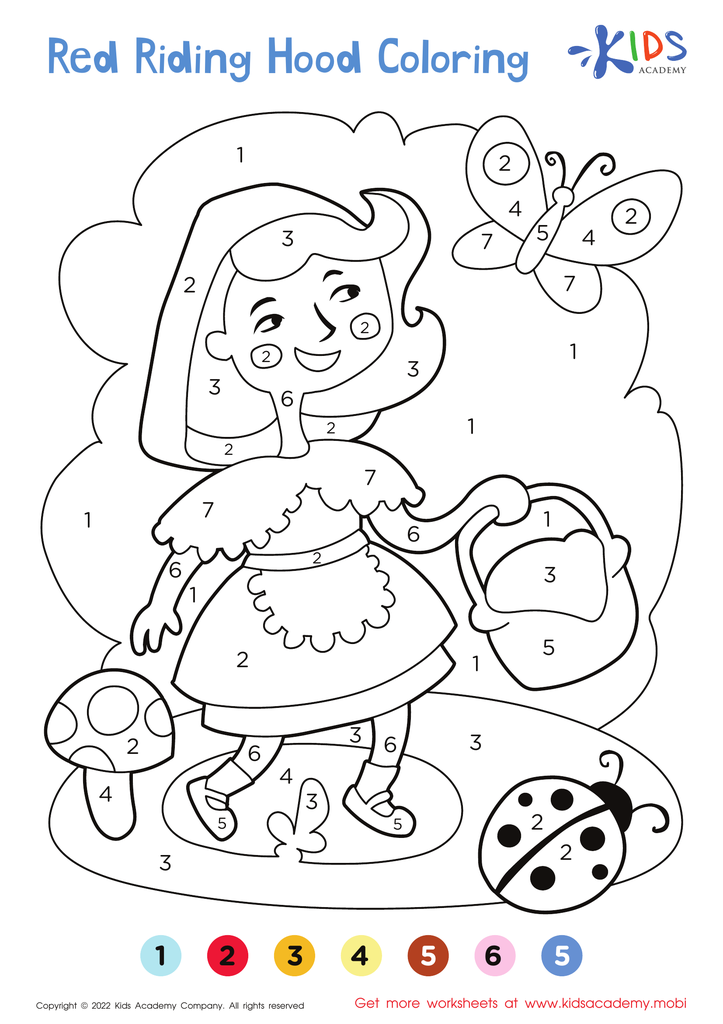

Little Red Riding Hood – Coloring by Numbers
Number identification is a foundational skill for children ages 4-7 that significantly influences their overall mathematical development. During these early years, children begin to connect numerical symbols with quantities, a crucial step for later arithmetic skills. Parents and teachers should prioritize this learning phase, as mastering number identification forms the bedrock of more advanced concepts such as addition, subtraction, multiplication, and division.
When children can easily identify numbers, they gain confidence in handling basic math operations, which fosters positive attitudes toward mathematics in general. Without this early confidence, children might struggle with math anxiety, impacting their academic performance in both the immediate and long-term future.
Additionally, strong numerical skills are tied to everyday tasks, such as telling time, handling money, and following sequences — all essential skills for independence. By investing time in educational games, puzzles, and hands-on activities that reinforce number recognition, parents and teachers provide children with ample opportunities to practice these skills in engaging and meaningful ways.
Moreover, early number fluency predicts later academic success not only in math but in other areas such as science and technology. Consequently, helping children master number identification at a young age can have a far-reaching impact on their future educational achievements and career opportunities.
 Assign to My Students
Assign to My Students



%20(1).jpg)












